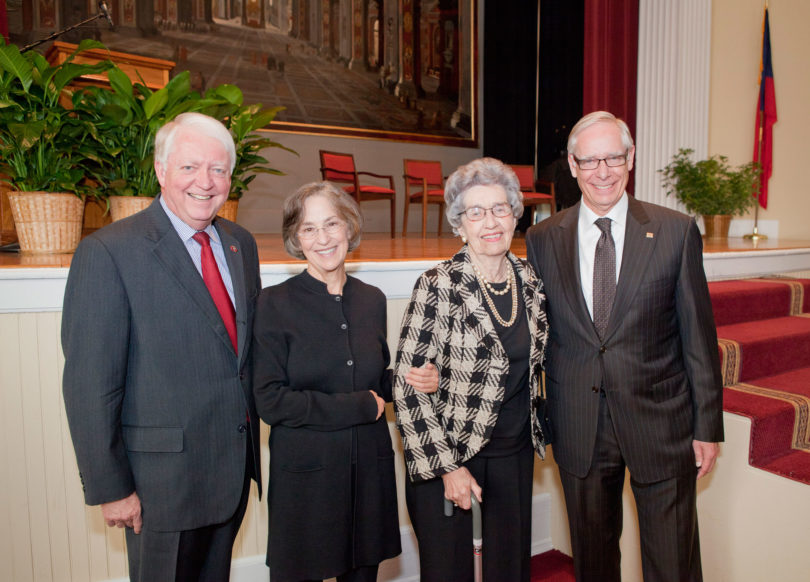Higher education institutions have a vital leadership role to play if the U.S. hopes to stay competitive throughout the 21st century, Robert Bruininks, president emeritus of the University of Minnesota, said Nov. 2 at the 23rd annual McBee Lecture.
“If we’re going to stay competitive as a nation, we need to have a serious discussion and a serious plan to develop our human capital and establish a culture of innovation,” he said. “By human capital I’m talking about the education instilled in our citizens throughout their lifespan, not just in college and university. This human capital and innovation agenda that I believe our nation needs to revisit should involve very strong and central leadership of higher education. It should be broad based and focused on essential public purposes.”
In his speech, “Public Good: The Road to Renewal for American Higher Education,” Bruininks outlined several “new realities” that colleges and universities need to focus on to kickstart American innovation and creativity, leading to a more competitive workforce.
If American higher education can effectively respond to a more globalized world, it can regain its place as the engine of the world’s workforce, he said.
“I find it inspiring to think about the history of public higher education in the United States and to realize that the University of Georgia and the University of Minnesota were actually chartered before statehood,” Bruininks said. “We were chartered by people who came to our states with the understanding that education was the absolute bedrock of a civil society and that new knowledge is an indispensable way of solving problems, encouraging growth and innovation and improving our economic prospects and quality of life.”
Higher education has been the focus of Bruininks’ career for more than 40 years. After stepping down as president of the University of Minnesota earlier this year, he is now a professor in that university’s Center for Integrative Leadership in the Hubert H. Humphrey School of Public Affairs.







